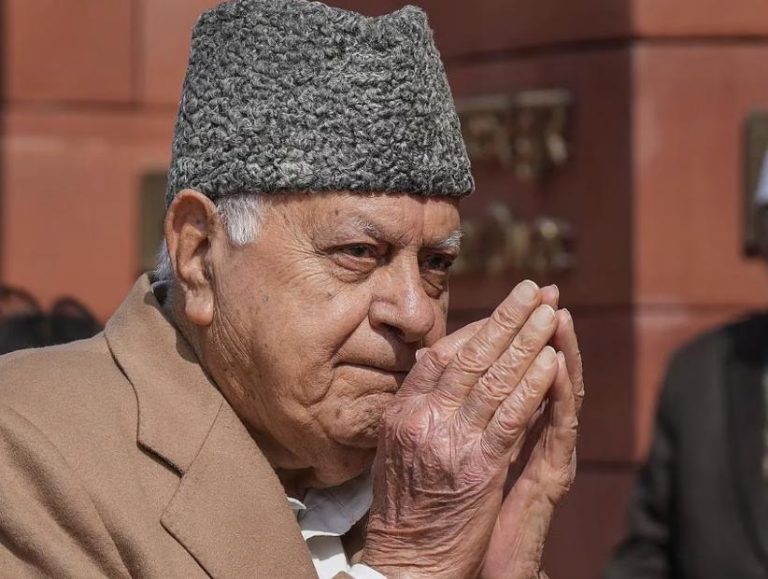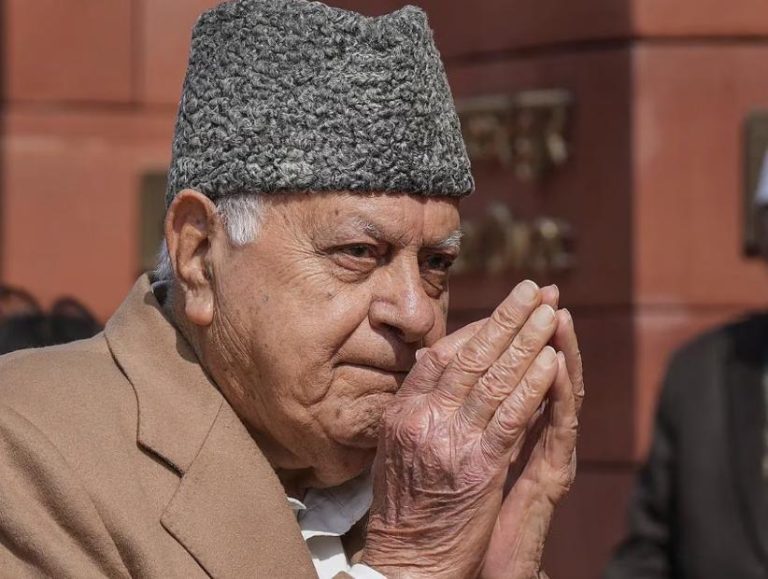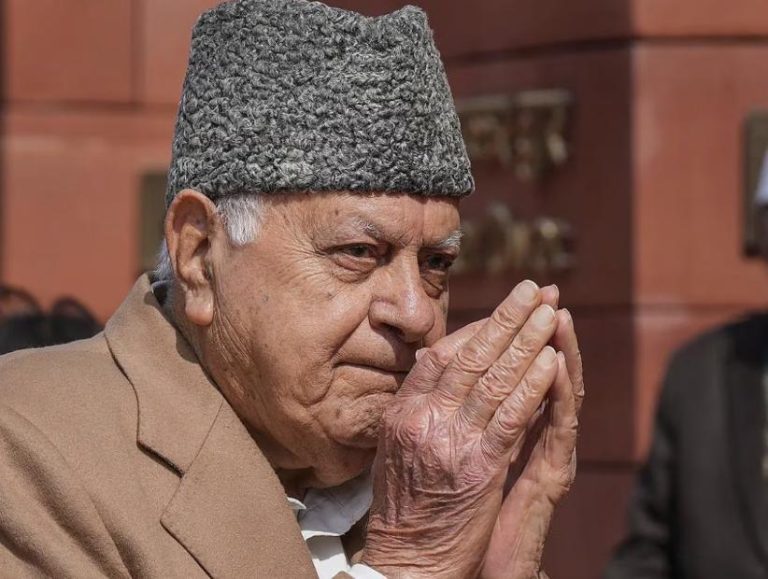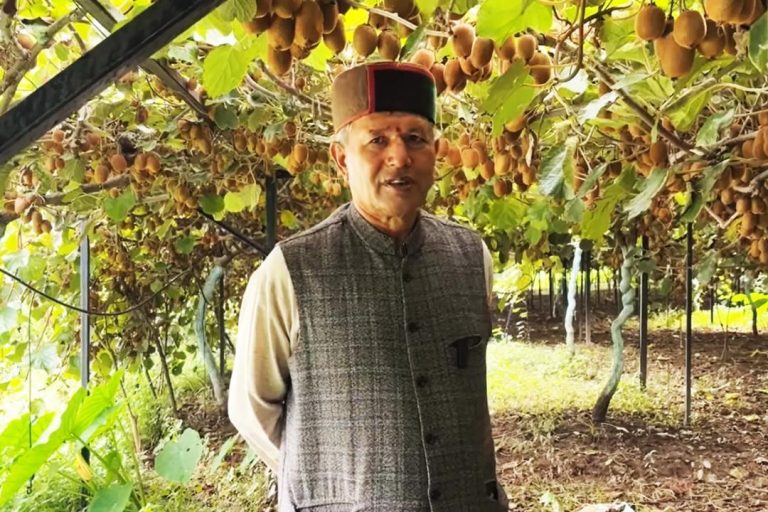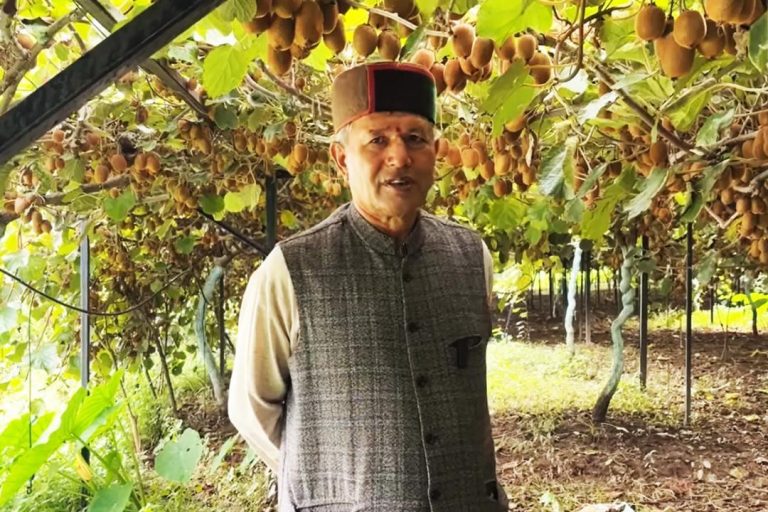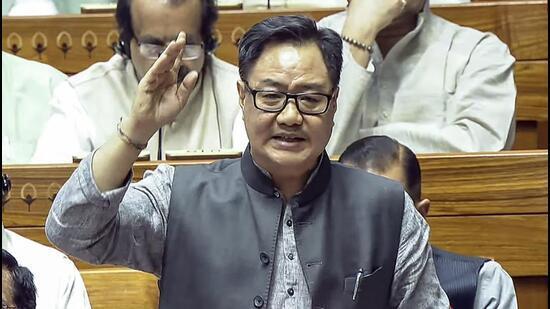
Opposition Creates Confusion & Leaves House: Rijiju in Rajya Sabha
The recent debate on the Waqf (Amendment) Bill in the Rajya Sabha witnessed a heated exchange between the government and the opposition, with Union Minister Kiren Rijiju criticizing senior members for creating confusion and not staying back to listen to the replies. The minister’s remarks came during the discussion on the bill, which aims to amend the Waqf Act, 1995, to bring uniformity in the management of Waqf properties.
Rijiju, who was participating in the debate, took a dig at senior MPs, including Kapil Sibal, for raising issues and creating confusion, but not staying back to listen to the responses from the government. He alleged that Sibal, a senior Congress leader, had created confusion by comparing the properties of Waqf bodies with those of other religious bodies.
“Waqf properties are not like other religious bodies’ properties. There is a difference. We should not compare apples with oranges,” Rijiju said, adding that the opposition was trying to create confusion and not allow the House to function smoothly.
Rijiju’s remarks drew strong reactions from the opposition, with Sibal and other senior members accusing the minister of being arrogant and trying to suppress the voice of the opposition. Sibal, in particular, criticized Rijiju for not being able to answer his questions and instead resorting to personal attacks.
The debate on the Waqf (Amendment) Bill was marked by strong views from both sides, with the government and the opposition holding different views on the proposed amendments. While the government argued that the bill was necessary to bring uniformity and transparency in the management of Waqf properties, the opposition claimed that it was an attempt to dilute the rights of the Waqf community.
The opposition also raised concerns over the constitution of the Central Waqf Council, which they claimed was dominated by members from the ruling party and was biased towards the BJP. They also criticized the government for not consulting the Waqf community and religious bodies before introducing the bill.
Rijiju, however, rejected these allegations, saying that the government had consulted the Waqf community and religious bodies before introducing the bill and that the opposition was trying to create confusion by raising false issues.
The debate on the Waqf (Amendment) Bill is not the first instance of confrontation between the government and the opposition in the Rajya Sabha. In recent times, the House has witnessed several instances of acrimony and heated exchanges between the two sides, with opposition members accusing the government of not being transparent and fair in its dealings.
The opposition’s criticism of the government’s handling of the Waqf (Amendment) Bill is not without merit. The bill has been criticized by several experts and civil society organizations, who have expressed concerns over the potential impact of the amendments on the rights of the Waqf community and the management of Waqf properties.
The Waqf Act, 1995, was enacted to regulate the management of Waqf properties, which are religious endowments dedicated to the welfare of the poor and the marginalized. The act provides for the constitution of the Central Waqf Council, which is responsible for advising the government on Waqf matters and monitoring the implementation of the act.
The Waqf (Amendment) Bill seeks to amend the Waqf Act, 1995, by introducing several changes, including the constitution of the Central Waqf Council and the appointment of members to the council. The bill also seeks to empower the Central Waqf Council to take over the management of Waqf properties if it is satisfied that the management of such properties is not in the best interests of the Waqf community.
The opposition has criticized the bill for empowering the Central Waqf Council to take over the management of Waqf properties without consulting the Waqf community and religious bodies. They have also raised concerns over the constitution of the council, which they claim is dominated by members from the ruling party and is biased towards the BJP.
Rijiju’s criticism of senior MPs for creating confusion and not staying back to listen to the replies is also not without merit. The opposition’s criticism of the government’s handling of the Waqf (Amendment) Bill is legitimate, and they should be willing to listen to the government’s responses and engage in a constructive debate.
In conclusion, the debate on the Waqf (Amendment) Bill in the Rajya Sabha highlights the need for a constructive and respectful dialogue between the government and the opposition. The opposition’s criticism of the government’s handling of the bill is legitimate, and they should be willing to listen to the government’s responses and engage in a constructive debate.
Sources:
